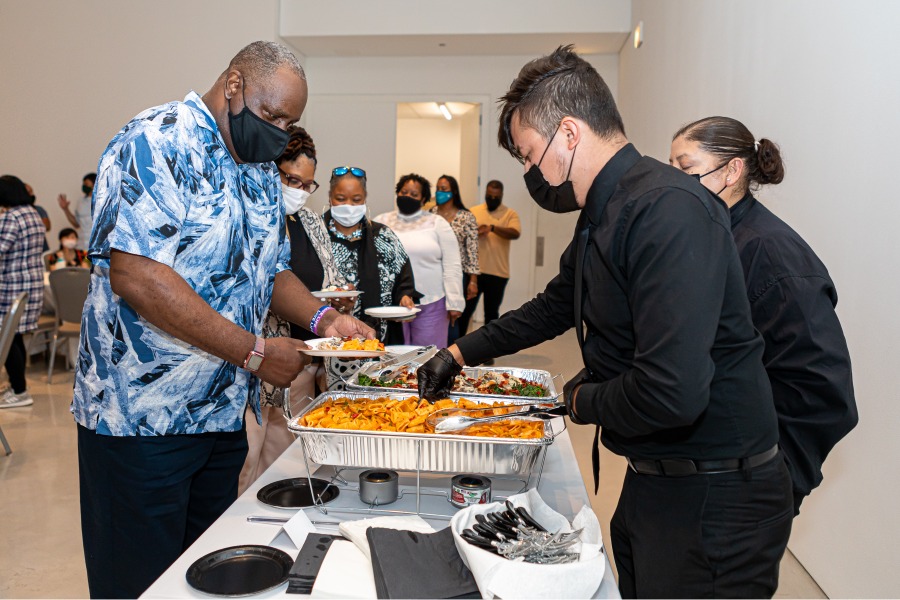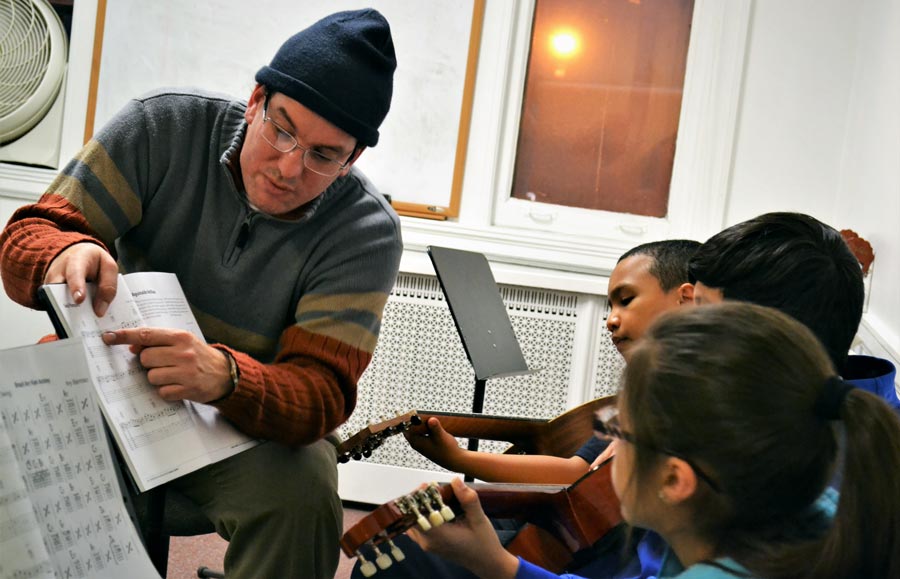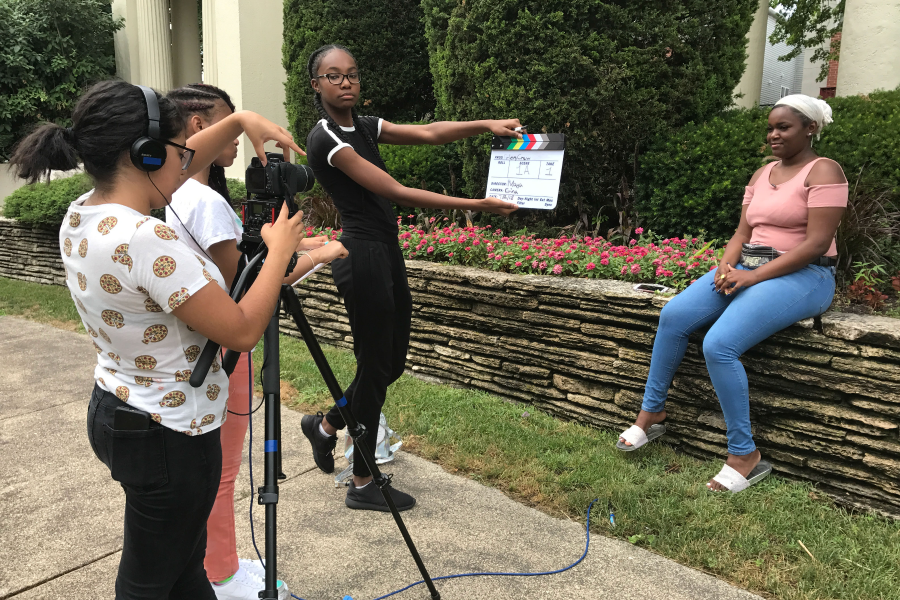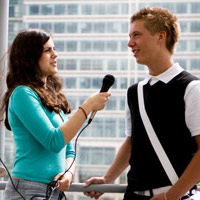Stephanie Platz, Managing Director, Programs, writes about the intersecting work MacArthur supports in Chicago that aims to create a more vibrant, thriving city.
Chicago’s community and nonprofit leaders demonstrated incredible resilience in responding to the pandemic for the second year running, all the while pursuing their pre-pandemic missions. As we reflect on the MacArthur Foundation’s work in our hometown in 2021, we are inspired by the dedication of leaders from every corner of the city. We are proud to stand with individuals and communities fighting for racial justice across the metropolitan area, whether their work has a focus on recovering equitably from the pandemic, helping to prevent gun violence, addressing environmental concerns, ending mass incarceration, or supporting independent media.
At MacArthur, we were privileged to award approximately 136 grants totaling more than $43 million in 2021 in Chicago. These grants originate in different areas of work — our Equitable Recovery Initiative and our Chicago Commitment, Climate Solutions, Criminal Justice, and Journalism and Media programs — and we hope all contribute to a vibrant, thriving city.
Equitable Recovery Initiative
As we described in the 2020 Reflection, to hasten an equitable recovery and overcome systemic racism, MacArthur raised additional dollars for grantmaking through the sale of bonds. Our Equitable Recovery Initiative works to create more resilient, inclusive communities to combat structural racism, inequality, and the COVID-19 pandemic, including significant support for the Chicago metro region.
With an emphasis on public health, we awarded grants to both educate the public on the importance of getting vaccinated and help residents obtain COVID-19 vaccines. Grants to organizations such as Interfaith Youth Core, Greater Auburn Gresham Development Corporation, Latino Policy Forum, Latinos Progresando, and West Side United (a project of Rush University Medical Center) all facilitated vaccine access, with several organizations establishing pop-up community vaccine centers. A grant to the Collaboratory for Health Justice at the University of Illinois at Chicago helped to strengthen Chicago’s public health infrastructure by developing a public health workforce training opportunity for youth. And an award to the Chinese American Service League will facilitate the creation of a public health data clearinghouse for Asian American and Pacific Islander social service organizations in Chicago and across the nation.

Celebrating Black Heroes of Chinatown, an event hosted by People Matter, a Chicago Racial Justice Pooled Fund grantee. Photo by Nancy Wong.
The pandemic had a significant mental health impact on young people, and especially young people of color. We recognized this and supported organizations such as A Long Walk Home, which offers culturally relevant mental health and wellness support for Black girls and young women. The Chicago Children's Advocacy Center responds to incidents of abuse and offers aid to youth and their families. And the Carle College of Medicine at the University of Illinois is training teenaged community health care workers to meet the health and wellness needs of their peers from traditionally marginalized communities in Chicago.
Racial justice was a significant focus of the Equitable Recovery Initiative. We renewed support for racial justice funds from 2020, and an award to the Barack Obama Foundation will create a dedicated space for leadership training, racial healing, and civic engagement. Another award to The Truth Telling Project based at Northeastern Illinois University Foundation implements a grassroots, community-centered truth-telling process to amplify the voices of the traditionally silenced and disenfranchised. Through a grant to the Inner-City Muslim Action Network, we also supported the national tour of “This Love Thing,” an album by MacArthur Fellow Rami Nashashibi and artist Drea d’Nur that focuses on racial and social justice.
“Mama Please” by Drea d’Nur and Rami Nashashibi featuring 1200 is dedicated to Cariol Horne and pushes a national call to action in support of Cariol’s Law that comprehensively addresses police violence.
Chicago Commitment
The Chicago Commitment team invests in people, places, and partnerships to advance racial equity and build a more inclusive Chicago. In 2021, we responded to the spike in gun violence in collaboration with the Partnership for Safe and Peaceful Communities, a Civic Partnership of more than 50 donors. Our grants provided community-based street outreach services, jobs, and cognitive behavioral therapy to individuals most likely to be involved in gun violence. We renewed support to the Grassroots Alliance for Police Accountability, a project of the Chicago Community Foundation, which built public support for a Community Commission for Public Safety and Accountability. This newly established Commission will conduct civilian oversight of the Chicago Police Department and help to build greater trust between residents and police officers.
We continued to explore models of participatory grantmaking, making a new set of multi-year general operating support awards under our Culture, Equity, and the Arts program. We also celebrated the first set of awards made by Chicago’s Cultural Treasures, a pooled fund created in 2020 with support from MacArthur and other donors that asked the people of Chicago what they valued most as our local cultural treasures. A selection committee recommended 40 grants totaling $14.4 million to people of color-led and -serving arts organizations.

Zabdiel Santiago, Music Manager at Puerto Rican Arts Alliance, provides instruction to music students. Puerto Rican Arts Alliance was one of 40 arts organizations named Chicago's Cultural Treasures.
Our focus on Vital Communities supported place-based and resident-designed economic development initiatives in Auburn Gresham, Belmont Cragin, Englewood, Little Village, Marshall Square, Pullman, Roseland, South Shore, and Washington Heights, as well as in the south suburbs. A planning grant to the Rebuild Foundation facilitates its support for creative individuals in the Greater Grand Crossing community, including affordable housing and studio space for artists and incubator space for entrepreneurs. And through our emphasis on Advancing Leadership, we renewed an award for Leaders for a New Chicago, a collaborative initiative with the Field Foundation, which supports individual leaders in the ways they wish to learn, grow, and advance their skills.
Climate Solutions
Seven Midwest states account for more than 20 percent of the United States’ carbon dioxide emissions and 5 percent of the world’s total. Moreover, the Midwest has the country’s largest concentration of old, dirty coal plants and is the center of the nation’s transportation infrastructure and industry. Building on significant investments in local environmental justice organizations made in 2020, our Climate Solutions team dedicated resources in 2021 to helping the Midwest region become the locus for innovative clean energy development and clean transportation solutions. An award to the Environmental Law and Policy Center of the Midwest supports policy and legal education and litigation within several states, including Illinois. In addition, we renewed support to Openlands for its urban forestry program, which engages communities actively with their local environments through education, advocacy, and the planting and care of trees.
Criminal Justice
Our Criminal Justice program strives to reduce both over-incarceration and the racial and ethnic disparities that are prevalent in our criminal justice system. As part of our Safety and Justice Challenge, in 2021 we supported efforts by the Restore Justice Foundation, the Shriver Center on Poverty Law, and the Circuit Court of Cook County to reduce unnecessary incarceration and address disparities in jail populations in Illinois. In addition, we dedicated resources to the Administrative Office of the Illinois Courts and to Justice System Partners to help successfully implement the Illinois Pretrial Fairness Act, a state law that abolishes money bond and limits pretrial incarceration to those charged with certain crimes.
Journalism & Media
Our Journalism and Media team works to strengthen American democracy by informing, engaging, and activating Americans through deep investments in independent journalism and media. In 2021, we awarded funds to local media outlets and programs such as Block Club Chicago, OTV-Open Television, the Reader Institute for Community Journalism (which publishes the Chicago Reader), the N’Digo Foundation for its public affairs television programming, and Chicago Public Media for the collaboration between WBEZ radio and Vocalo.

Free Spirit Media team of emerging creators and media makers in action.
We also supported Free Spirit Media, which provides a range of media literacy and hands-on media production programs for young people on Chicago’s South and West Sides, and Public Narrative, which facilitates Black and Latinx artists and journalists working together to create more just and accurate narratives. Finally, we renewed support to the Black Youth Project (BYP), based at the University of Chicago, which examines the attitudes and culture of millennials and GenZers of color, with a special focus on African American youth.
Conclusion
In 2021, we strove to respond to the racial disparities laid bare by the pandemic, and the systemic injustice demonstrated by ongoing killings at the hands of police officers. We are bringing a heightened focus on racial justice to all areas of our work, recognizing that we have a great need for progress toward making the resources of our city equitably available to all. We know that in undertaking this work, we have a great deal to learn from the people and communities we seek to serve.






